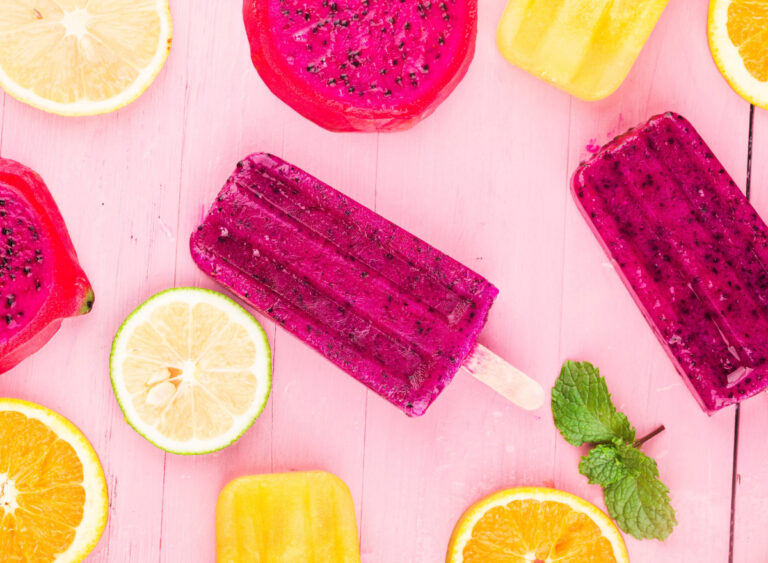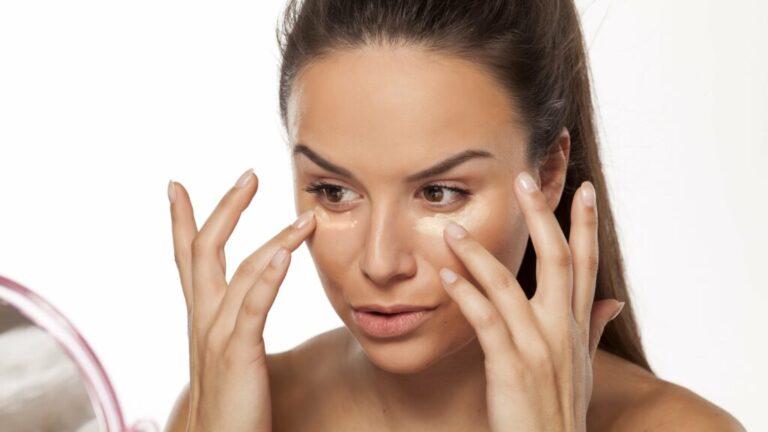Have you ever experienced that feeling of unease, your heart pounding, and your mind racing with a million thoughts? Anxiety is a common emotion that we all face at some point in our lives. But when it starts to interfere with your daily life, it’s time to take action and learn how to reduce anxiety. One approach is to turn to natural remedies when you want to learn how to reduce anxiety symptoms.
I’m an anxiety expert and therapist who has experienced anxiety first hand, and in this post, we’ll explore various natural remedies, from physical activity and nutrition to mindfulness and connecting with others, which can help you regain control of your anxiety and feel calmer.
Embrace Physical Activity
When anxiety strikes, it’s easy to get caught up in a cycle of negative thoughts and feelings. Engaging in physical activity can effectively disrupt this cycle. Exercise has been shown to improve mental health, increase concentration, and boost mood, which can all help alleviate anxiety symptoms. From brisk walks and short circuit routines to biking around the neighbourhood, any form of physical activity can be a potent weapon in your battle against anxiety.
If you’re a beginner or looking for something less intense, fear not. Activities like Pilates and yoga can also be beneficial for your mental health, especially if you’re dealing with an anxiety disorder. Plus, spending time outdoors and connecting with nature during your workouts can further enhance your overall well-being.
No matter which type of exercise you choose, make sure to breathe deeply and focus on the present moment. Deep breathing can help restore normal breathing patterns and reduce anxiety. The next time anxiety strikes, harness the power of physical activity to manage stress and alleviate anxiety symptoms.
Adopt a Nutritious Diet
Did you know that the foods you eat can impact your mental health? Adopting a nutritious diet rich in specific nutrients can help reduce anxiety by promoting overall mental and physical health.
Below, we’ll look at four essential nutrients for anxiety relief: omega-3 fatty acids, B vitamins, magnesium, and probiotics.
Omega-3 Fatty Acids
Omega-3 fatty acids, found in fish oil, play a significant role in supporting brain function and mood regulation, which can help reduce anxiety. Researchers found that those taking higher levels of omega 3 (2,000mg a day) had a reduction in anxiety symptoms. These essential fatty acids have also been linked to lower depression association. So, how can you get your hands on some omega-3s? Incorporate fish oil into your diet, or consume oily fish like salmon, mackerel, and sardines, which are rich in omega-3 fatty acids. This natural alternative to anti-anxiety medication can be beneficial for some individuals.
In addition to fish, other dietary sources of omega-3 fatty acids include walnuts, chia seeds, and flaxseeds. If you’re not a fan of fish or nuts, you can also consider taking omega-3 supplements. Sometimes these are made of algae and are a vegan source of omega 3. However, it’s essential to consult your healthcare provider before starting any supplementation, as it may interact with certain medications or have side effects.
Incorporating omega-3 fatty acids into your diet not only paves the way for anxiety relief, but also bolsters your overall brain health and well-being. So don’t hesitate to add some fish or nuts to your next meal to reap the benefits of this powerful nutrient.
B Vitamins
B vitamins play a crucial role in our body’s stress response and overall mental health. In particular, vitamin B6 has been found to be effective in reducing anxiety and stress. Research has shown that taking high doses of vitamin B6 supplements can make a significant difference in reducing feelings of stress, anxiety, and depression. In addition, vitamin B6 supplementation has been known to reduce symptoms of anxiety and depression. Other B vitamins, such as B9 and B12, are also thought to be beneficial in treating symptoms of anxiety.
You can obtain B vitamins from various foods, such as:
- Eggs
- Dairy
- Legumes
- Nuts
- Whole grains
However, some people, like vegans or vegetarians, may have difficulty getting enough B vitamins through their diet and may benefit from taking supplements. Consult your healthcare provider before starting any supplementation, as it may interact with certain medications or have side effects.
Incorporating B vitamins into your diet or supplement routine bolsters your body’s capacity to respond to stress and manage anxiety effectively. So, give your body the tools it needs to combat stress by ensuring you’re getting enough of these essential nutrients.
Magnesium
Magnesium is an essential mineral that plays a key role in regulating stress and anxiety. It assists with:
- Brain functions that reduce stress and anxiety
- Encouraging the production of melatonin and serotonin (which increase relaxation)
- Regulating anxiety by increasing GABAergic availability
While more research is needed, current studies suggest that magnesium may be beneficial in managing anxiety.
You can obtain magnesium through your diet by consuming foods like dark leafy greens, nuts, seeds, legumes, and whole grains. If you’re considering taking a magnesium supplement, it’s best to consult your doctor first. Taking too much magnesium can cause unpleasant side effects like nausea, diarrhea, and abdominal cramping.
Magnesium is essential for keeping stress and anxiety in check. Ensure you’re getting enough of this vital mineral through your diet or supplements (with your doctor’s guidance) to support your mental health and well-being.
Probiotics
Probiotics, the beneficial bacteria found in fermented foods, can help improve gut health, which is linked to mental well-being and anxiety reduction. Studies suggest that certain strains of probiotics, such as Bifidobacterium longum and Lactobacillus acidophilus, may help with stress and anxiety management and even depression. However, more research is needed to fully understand their effects on anxiety and stress.
Fermented foods like yogurt, kefir, sauerkraut, kimchi, and kombucha are excellent sources of probiotics. You can also find probiotic supplements at health food stores and online if you prefer. Be sure to consult your healthcare provider before starting any supplementation, as it may interact with certain medications or have side effects.
By incorporating probiotics into your diet or taking supplements, you can support your gut health and mental well-being, ultimately helping to reduce anxiety. So, give your gut a boost by adding some fermented foods to your diet or considering probiotic supplements.
Limit Stimulants
Stimulants like caffeine and nicotine can exacerbate anxiety symptoms, making it crucial to limit their intake. Cutting back on caffeine and alcohol can help with anxiety by reducing symptoms such as shakiness and rapid heartbeat. Moreover, smoking has been known to alter the pathways in the brain associated with anxiety symptoms, making it even more important to reduce or quit cigarette smoking.
Caffeine, in particular, can cause or worsen anxiety disorders, including generalised anxiety disorder and chronic anxiety, and even lead to panic attacks in people with panic disorder. Limiting caffeine intake by opting for decaffeinated or herbal teas and reducing the consumption of energy drinks, coffee, and chocolate can help manage anxiety symptoms more effectively.
Limiting intake of stimulants such as caffeine and nicotine is a proactive measure towards managing anxiety symptoms and fostering overall mental health. So, consider swapping that morning coffee for a calming herbal tea or a decaf version.
Prioritise Quality Sleep
We all know that a good night’s sleep is essential for our overall well-being, but did you know it’s also crucial for maintaining mental health and reducing anxiety? Ensuring you get adequate, quality sleep can help you manage stress and anxiety more effectively. The Centres for Disease Control and Prevention (CDC) recommends that adults aim for 7 to 9 hours of sleep per night.
To improve your sleep quality, consider establishing a regular sleep schedule, creating a relaxing bedtime routine, and minimising distractions in your sleep environment. Prioritising quality sleep can not only help you feel refreshed and rejuvenated, but also play a vital role in managing anxiety and maintaining optimal mental health.
Practice Mindfulness Techniques
Mindfulness techniques, such as meditation and deep breathing, have gained popularity in recent years as effective ways to manage stress and anxiety. These practices can help increase self-awareness, promote relaxation, and allow you to better manage your thoughts and feelings. Studies have shown that practicing mindfulness techniques can help restore normal breathing patterns and reduce anxiety.
Meditation, in particular, can help you feel more calm and content by increasing your capacity to be mindful of all thoughts and feelings. Deep breathing exercises, on the other hand, can help relieve stress and anxiety by encouraging you to breathe deeply and focus on the present moment.
Incorporating mindfulness techniques into your daily routine can help you combat anxiety and excessive worry more effectively. So, whether you choose meditation, deep breathing exercises, or even a combination of both, remember that practicing mindfulness can be a powerful tool in your anxiety management arsenal.
Explore Aromatherapy
Aromatherapy, a natural way to help reduce anxiety, involves using essential oils known for their calming and relaxing effects. Essential oils, derived from natural plant extracts, can be used in various ways, such as inhaling them directly, adding them to a warm bath, or using a diffuser. Some popular essential oils for anxiety relief include lavender, chamomile, and bergamot.
Research has shown that aromatherapy can help reduce anxiety and stress, promote relaxation, and improve emotional well-being. Incorporating aromatherapy into your self-care routine offers a natural pathway for anxiety and stress relief, while bolstering your overall mental health.
So consider exploring the world of aromatherapy and essential oils to find the scents that resonate with you and help you feel more relaxed and at ease in your daily life.
Herbal remedies
Herbal supplements, such as chamomile tea and CBD oil, can offer natural relief for anxiety by calming nerves and promoting relaxation. Chamomile tea, for instance, can help alter cortisol levels, a stress hormone, providing a soothing effect on the body and mind. CBD oil, a natural remedy derived from the cannabis plant, has been suggested to help reduce anxiety symptoms without causing major side effects.
While herbal remedies can provide an alternative to traditional treatments for anxiety, it’s essential to consult a doctor before using them, as they may interact with certain medications or have side effects.
Exploring natural remedies, herbal supplements, and traditional treatments under the guidance of a healthcare professional opens up additional avenues to relieve anxiety and allows you to determine the most effective approach for managing your anxiety symptoms, including physical symptoms.
Engage in Creative Outlets
Engaging in creative outlets like journaling, art, or music therapy can help reduce anxiety by providing a healthy way to express emotions and cope with stress. These activities can help you channel your anxious energy into something productive and fulfilling, allowing you to release pent-up stress and anxiety in a constructive manner.
Journaling, for example, has been found to be particularly helpful for teenagers and children experiencing anxiety. Writing down your thoughts and feelings can provide a sense of relief and help you gain perspective on your anxiety. Art and music therapy, on the other hand, can be therapeutic outlets for expressing emotions and managing stress in a creative way.
Engaging in creative outlets not only offers a healthy coping mechanism for anxiety, but also nurtures self-expression and personal growth. So consider exploring different creative activities to find the ones that resonate with you and help you manage your anxiety more effectively.
Spend Time in Nature
Spending time in nature can have a profound impact on anxiety relief, promoting relaxation, boosting mood, and improving cognitive abilities. Research has shown that even just 20 minutes in nature can lower stress hormones and improve mental health. So, whether you’re going for a walk in the park, hiking on a trail, or simply sitting and taking in the scenery, immersing yourself in nature can be a powerful way to alleviate anxiety.
There are many ways to enjoy nature and reap its benefits, such as bird watching, gardening, or camping. Incorporating nature into your daily life cultivates an environment conducive to relaxation and mental well-being.
So next time you’re feeling anxious, consider spending some time in nature to clear your mind, boost your mood, and reconnect with your inner peace.
Connect with Others
Connecting with others through social activities, support groups, or animal therapy can help reduce anxiety by providing companionship, love, and emotional support. Building connections with others can offer a sense of belonging and help you navigate your anxiety journey more effectively.
Support groups, in particular, can provide a safe space for individuals experiencing anxiety disorders to share their experiences, learn from others, and develop coping strategies. Animal therapy, on the other hand, can offer unconditional love and support, helping to alleviate anxiety symptoms and promote overall mental health.
Connecting with others, through social activities, support groups, or animal therapy, not only helps in reducing anxiety, but also nurtures meaningful relationships and emotional connections that enhance your overall well-being.
Consider Complementary Therapies
Complementary therapies, such as acupuncture or hypnotherapy, can offer additional anxiety relief options for those seeking alternative approaches to managing their anxiety symptoms. While these therapies may not work for everyone, they can provide valuable support for those who find traditional treatments ineffective or inaccessible.
Acupuncture, an ancient Eastern practice, has been shown to help reduce:
- fear
- stress
- anxiety
- panic disorder
- panic attack
Hypnotherapy
Hypnotherapy uses the power of suggestion to help individuals manage their anxiety symptoms and develop healthier coping mechanisms. This therapeutic approach harnesses the subconscious mind to change negative thought patterns and behaviours. By guiding you into a deeply relaxed state, the hypnotherapist can access your subconscious and introduce positive suggestions that can help you manage your anxiety more effectively. This can include techniques for managing stress, boosting self-confidence, or altering the way you respond to anxiety triggers. It’s important to note that hypnotherapy is not about controlling your mind, but rather empowering you to take control of your own thoughts and behaviours. It’s a collaborative process where you and the hypnotherapist work together to achieve your goals.
Frequently Asked Questions
How can I relieve anxiety fast?
Try calming breathing exercises, talking to someone about your feelings, and exercising as strategies to manage anxiety and reduce stress.
Listening to music or creating a new playlist can also help relax your mind.
What are the 3 coping resources for anxiety?
Visualisation, meditation and yoga are excellent coping resources for anxiety. Make sure to prioritise sleep and talk with your doctor if needed.
What are 5 ways to reduce anxiety?
Five ways to reduce anxiety are to practice coping strategies, engage in deep breathing exercises, try relaxation techniques, challenge negative thoughts, and practice mindfulness.
With these strategies, you can work towards relieving your anxiety.
What types of physical activities can help reduce anxiety?
Exercising regularly can be a great way to reduce anxiety, with activities like brisk walking, biking, Pilates, yoga and circuit routines helping to improve mental health, increase concentration and boost mood.
These activities can be done in the comfort of your own home, or outdoors in a park or other natural environment. They can also be done alone or with friends, making them a great way to socialize and stay connected.
Regular exercise can also help to reduce stress levels and improve health.
This content was originally published here.



















